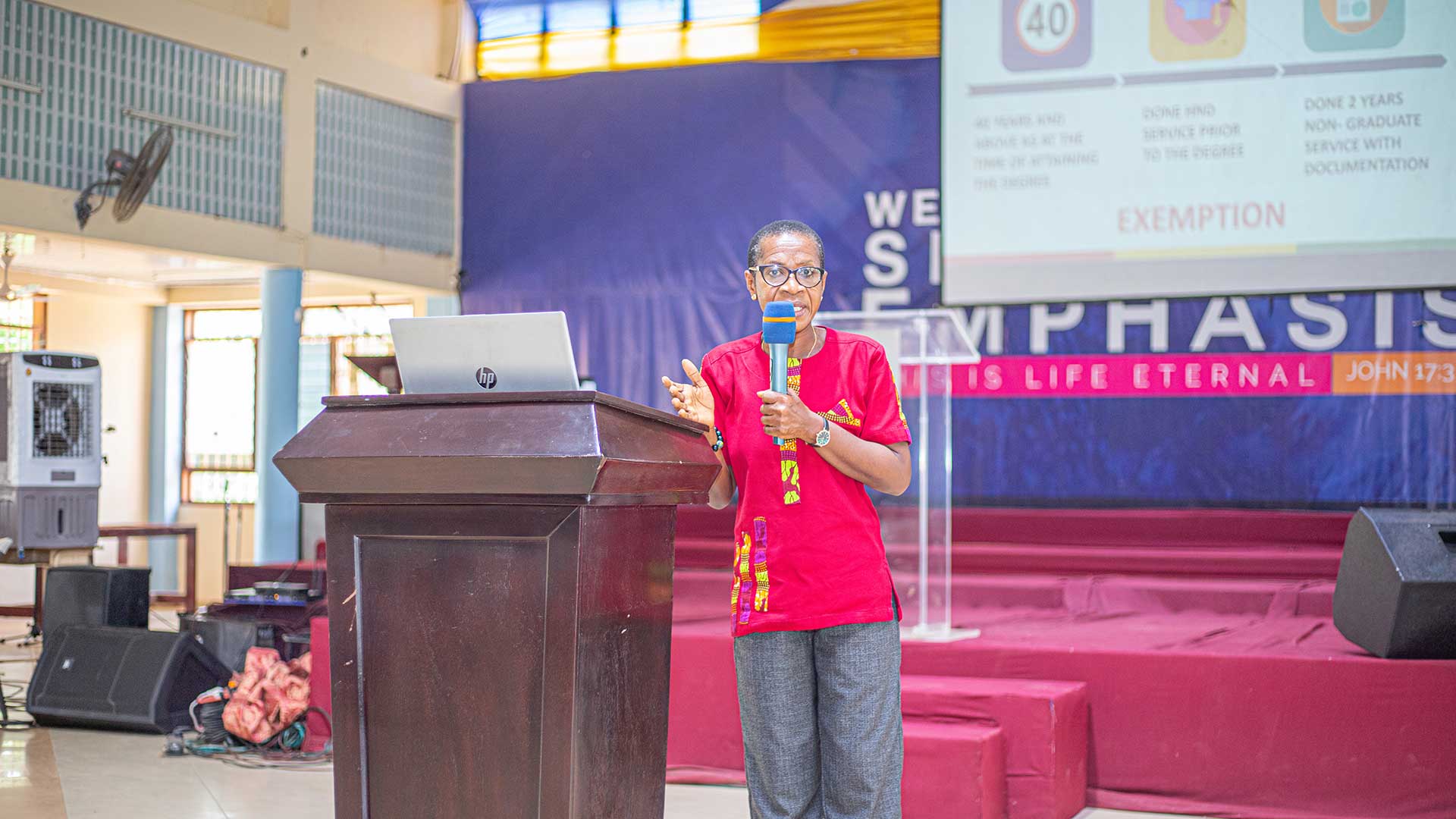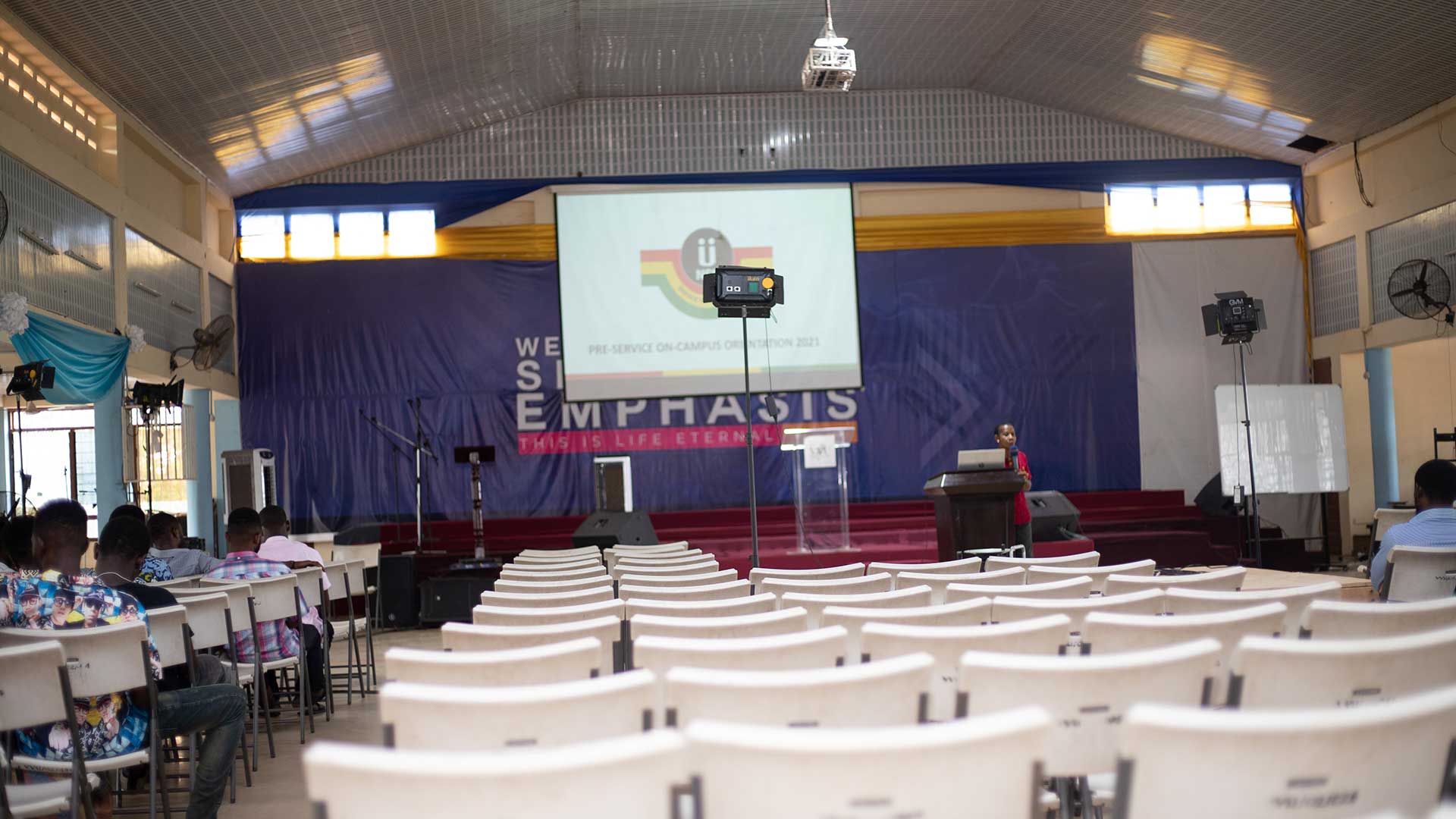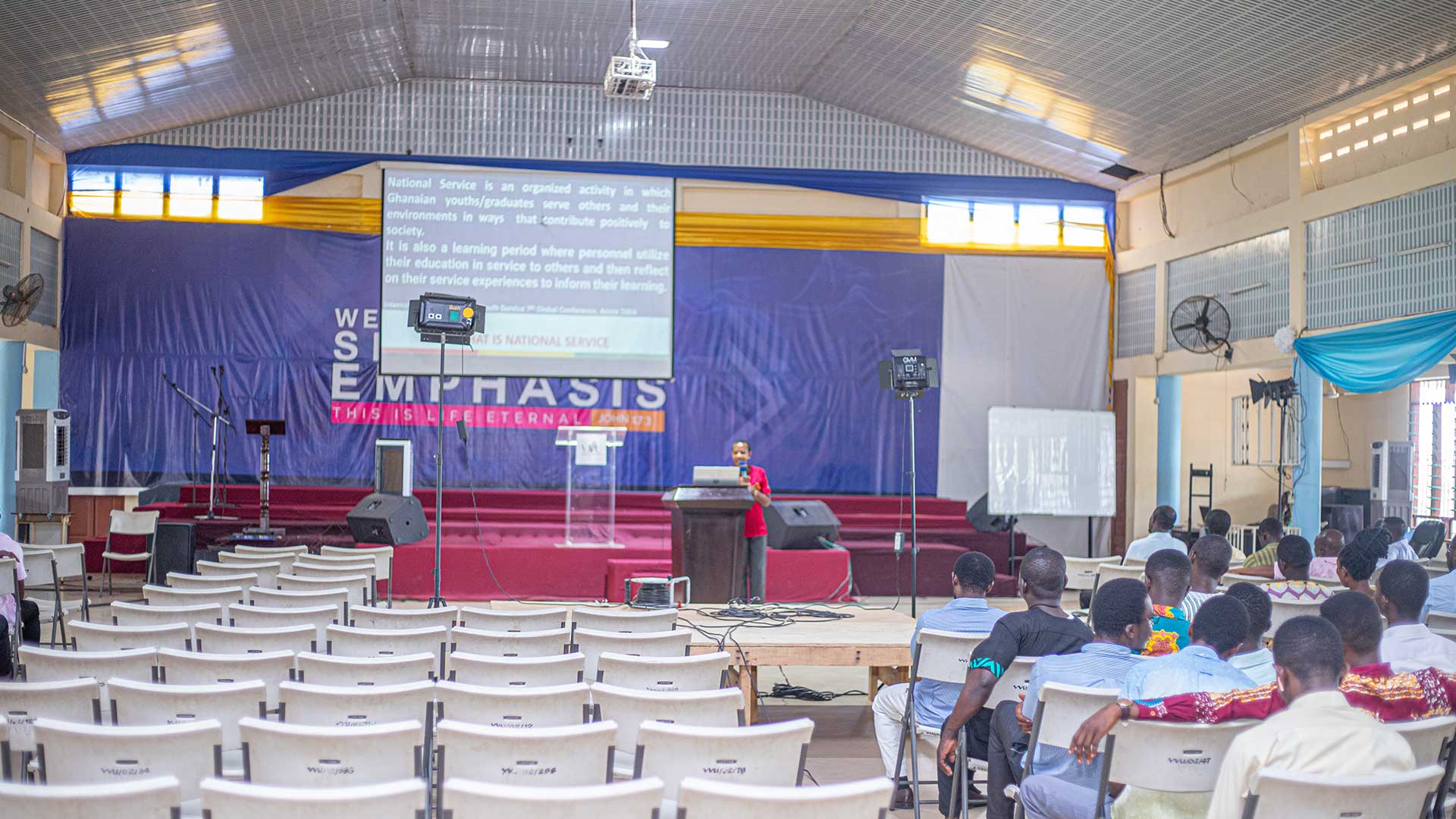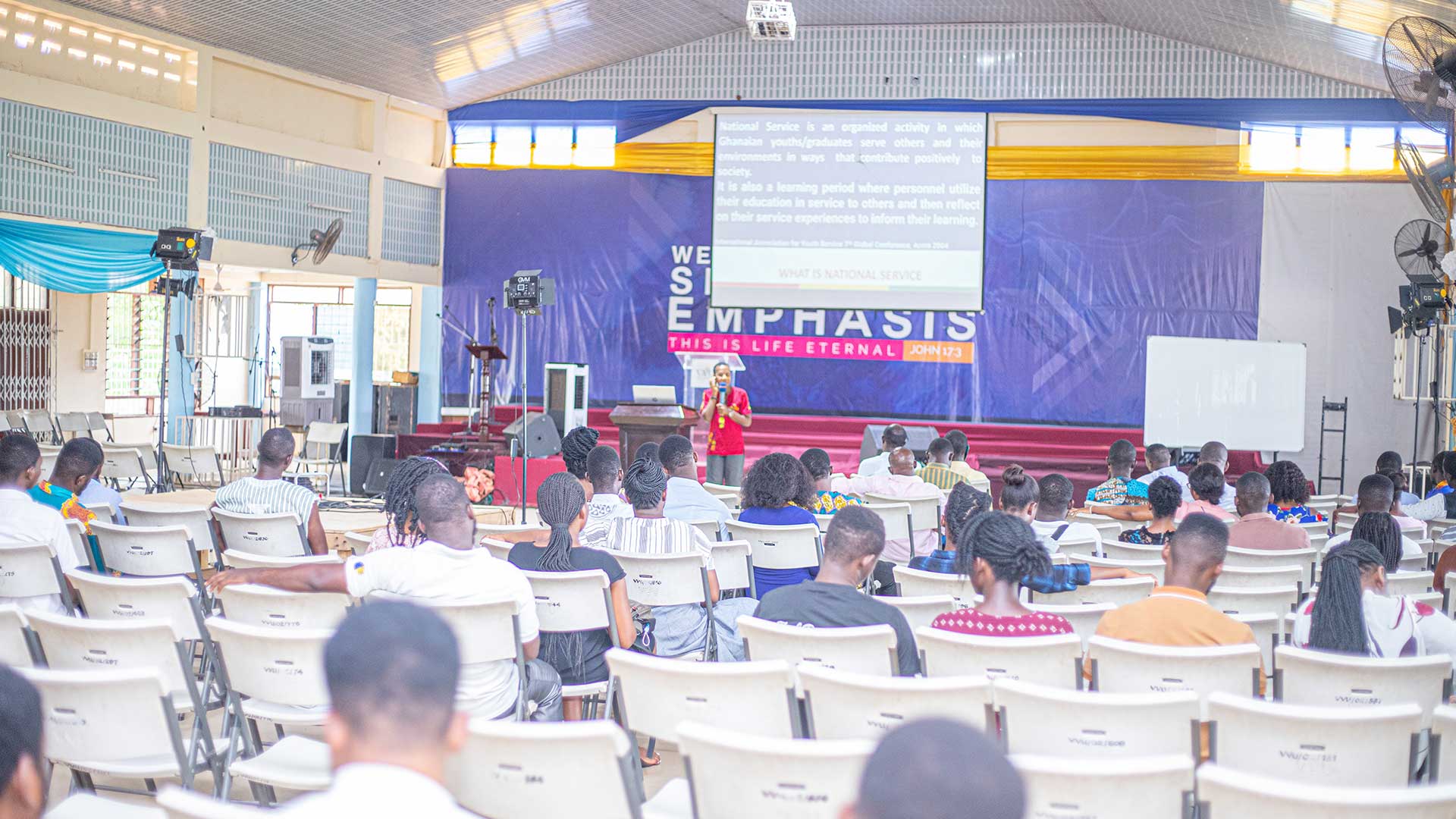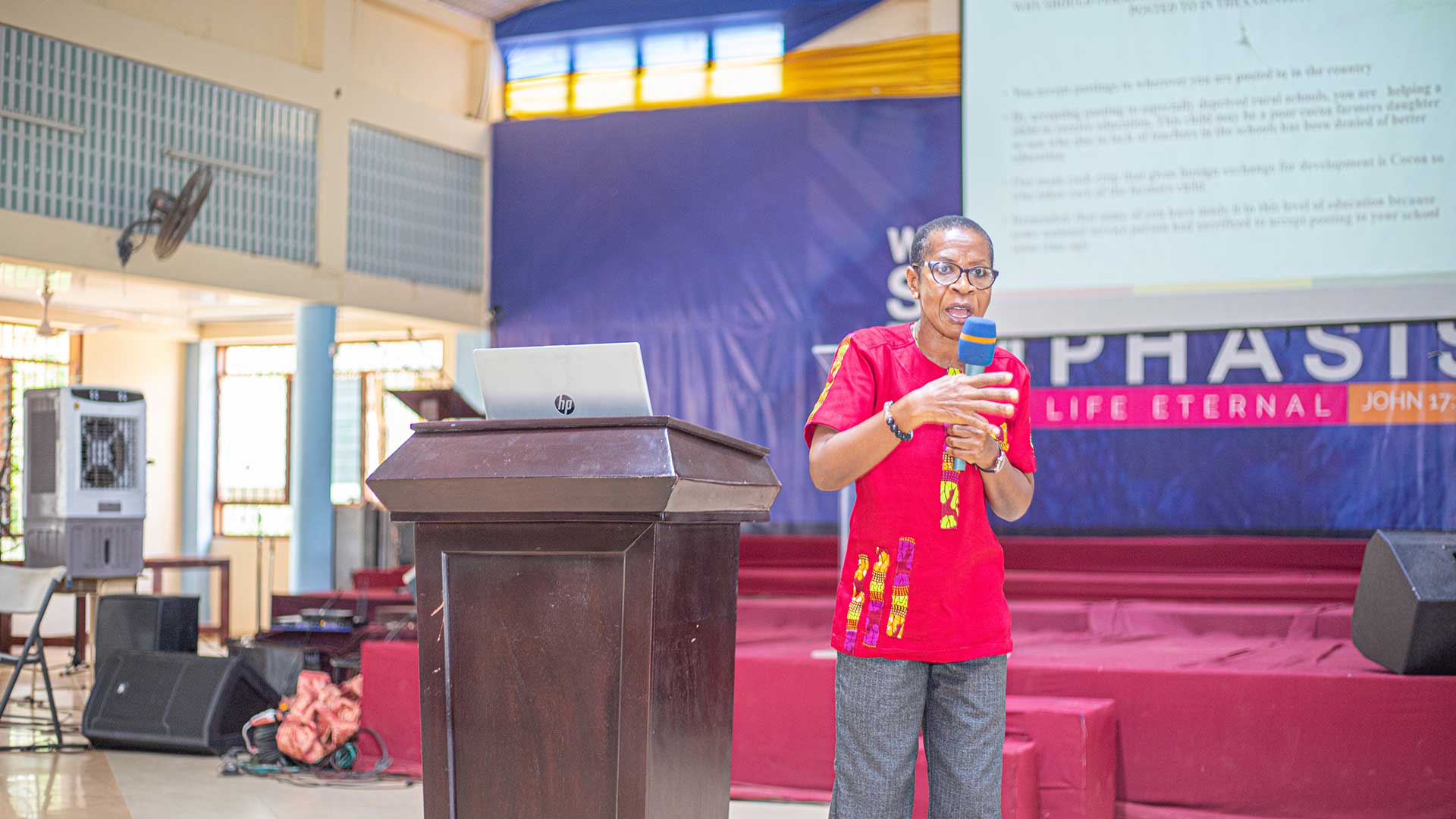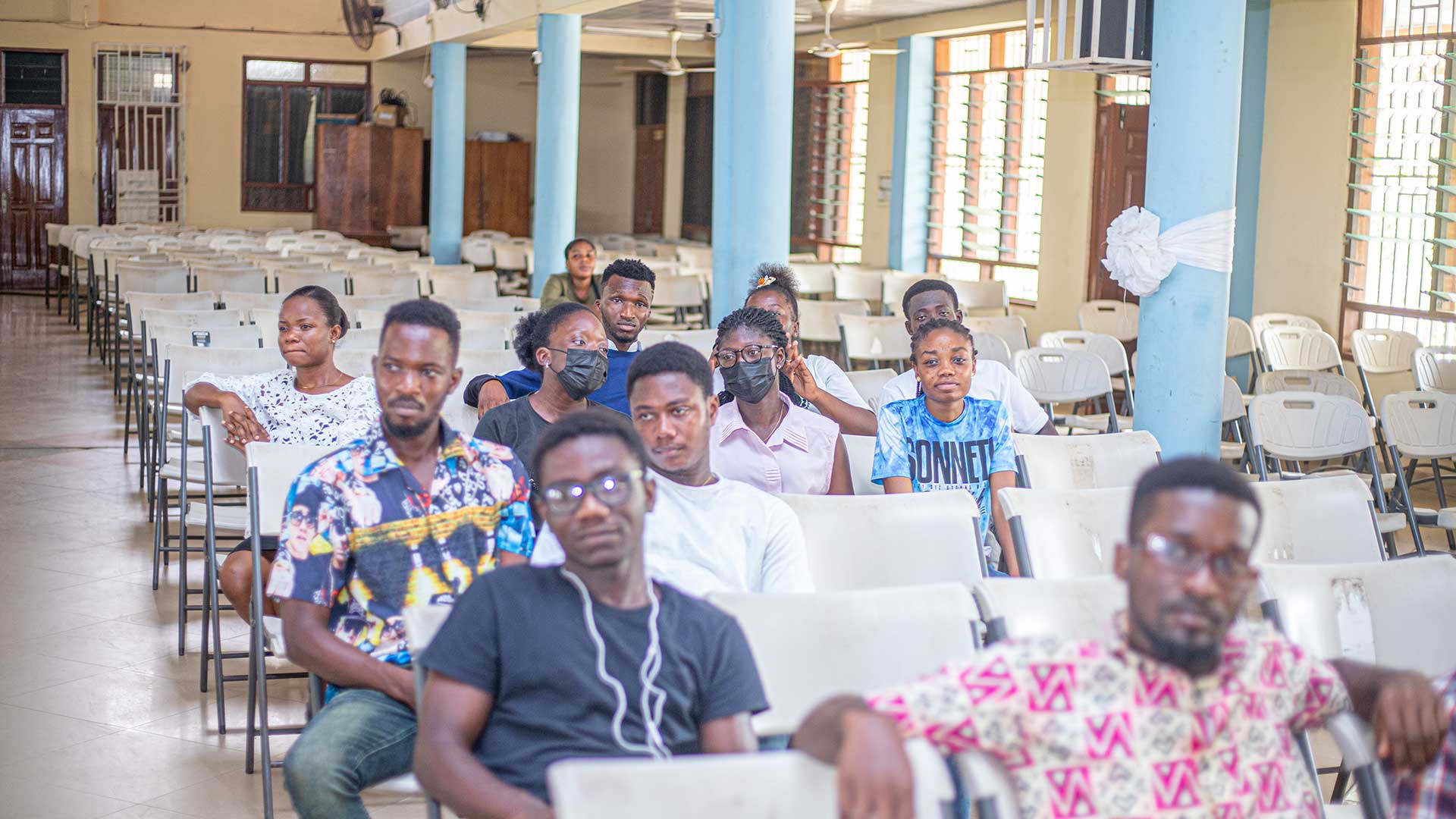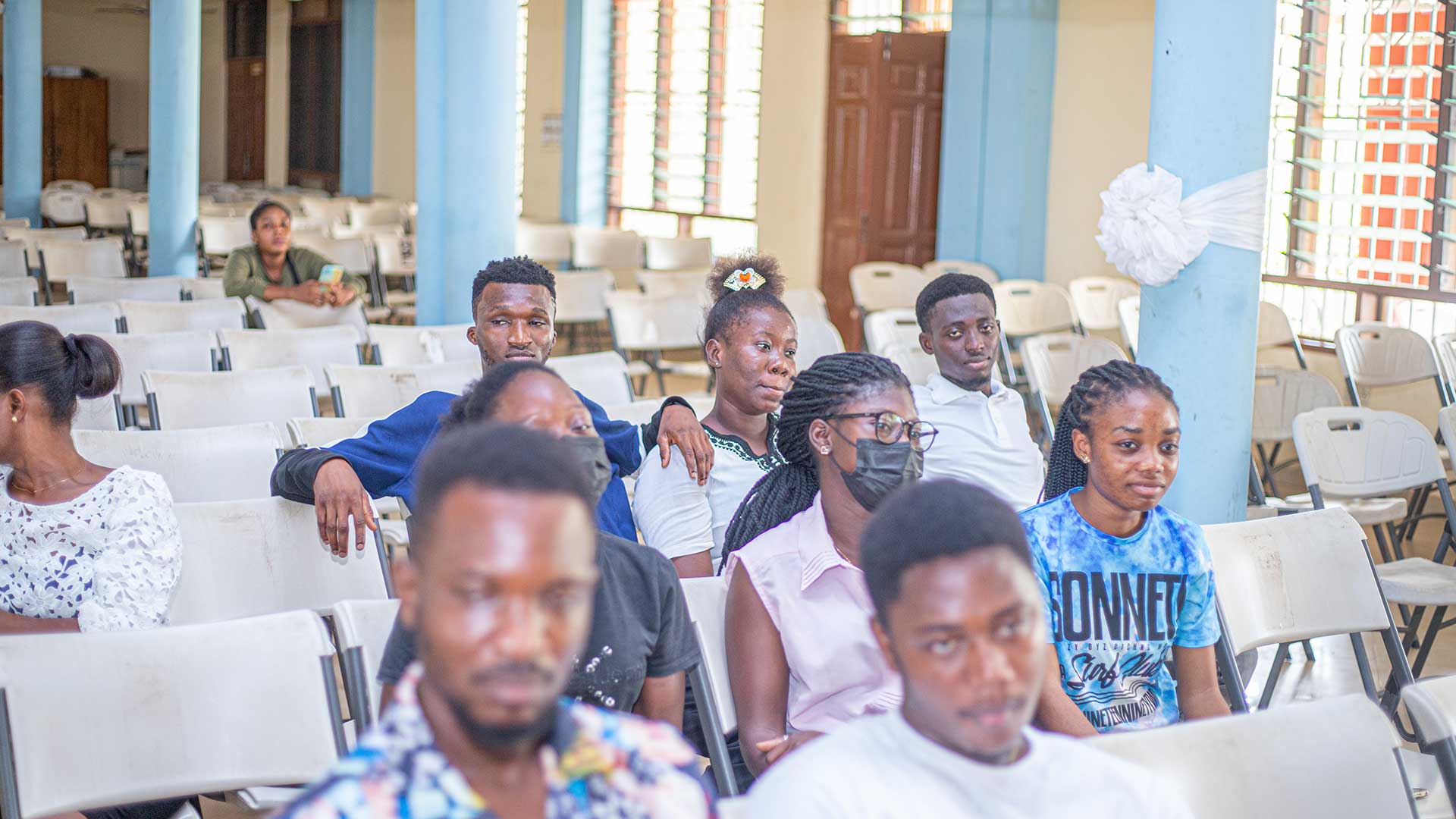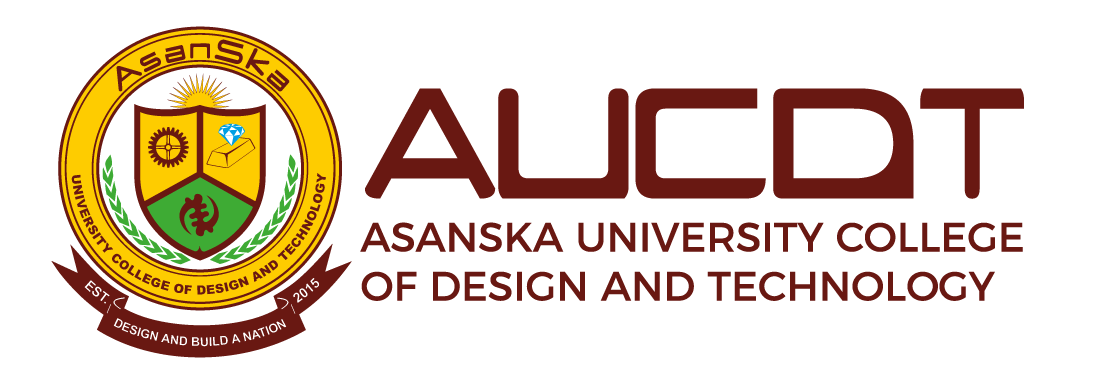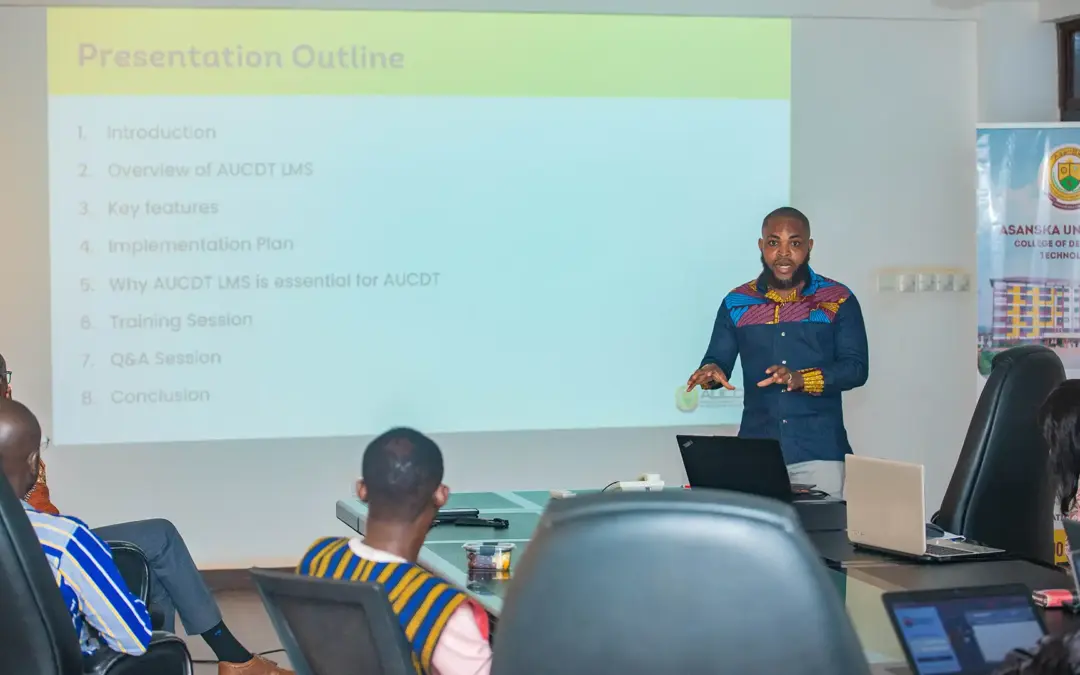The training program started with an opening prayer and a welcome address by the host institution. The workshop was divided into two phases. The first phase was a briefing by the Greater Accra Regional Director of the NSS, Anastasia M. A. Zanoo. The second phase involved an introduction to the online portal developed to facilitate the entire NSS process.
During the brief address, she touched on the meaning of the NSS and the rationale behind it. According to her, it was an opportunity for Ghanaian students to contribute positively to society and also a learning period. She further talked about the impact NSS has on the personnel, community, and nation at large. According to her, it is also an opportunity for graduate students to gain knowledge about their country.
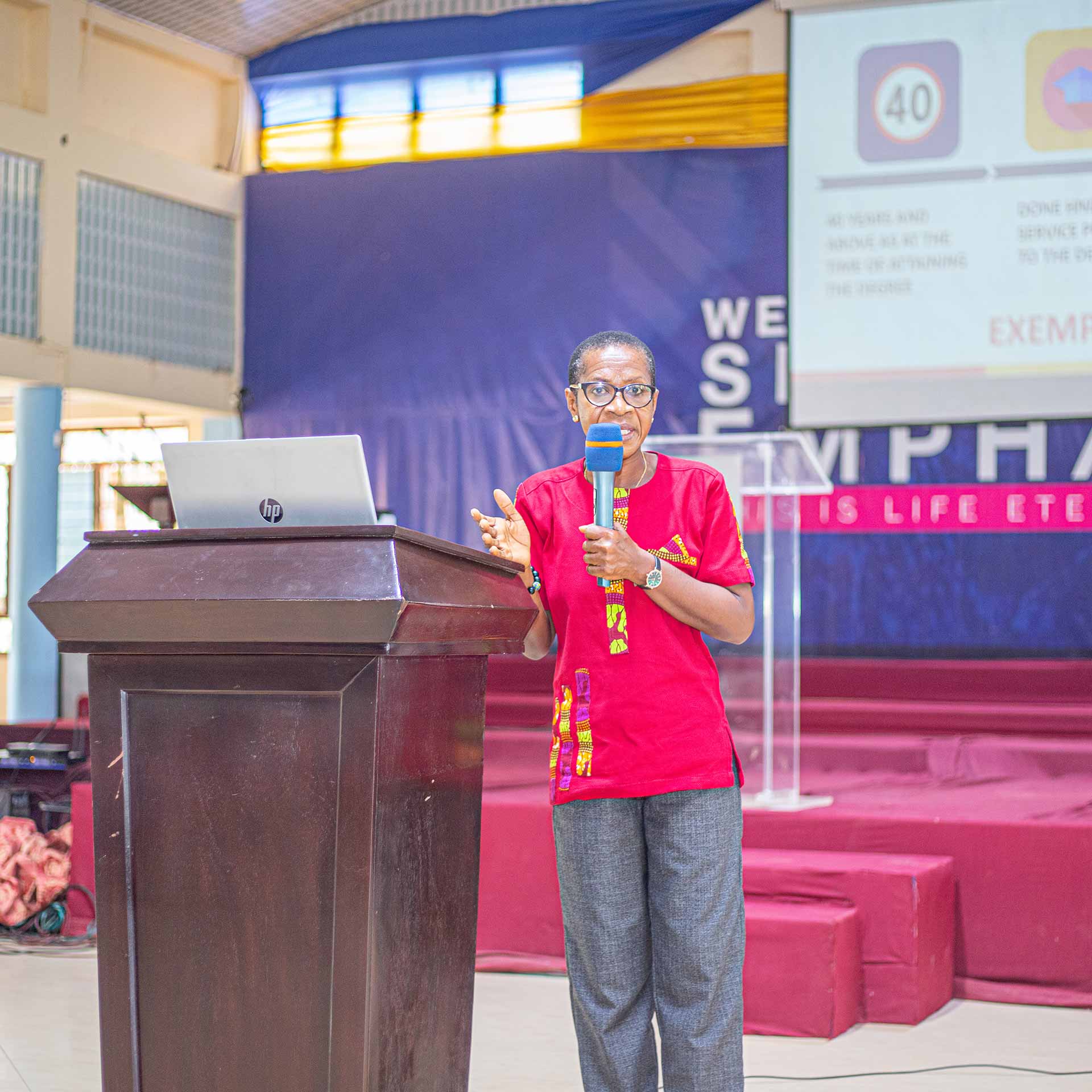
The National Service in Ghana is mandatory and currently sanctioned under the ACT 426 (1980) and currently undergoing a review. To qualify for National Service, one has to be 18 years, be of sound mind and be a tertiary graduate. The period is based on twelve (12) months, which is from September to July.
The new vision of the National Service Scheme is “Deployment for Employment”. This vision came up because of the high populace of graduate students who do not get any form of employment after their mandatory National Service. The current vision, therefore, is a step in the right direction as the scheme is aiming at helping institutions employ some of their service personnel after their service period. In view of this, the NSS has developed a program dubbed the NSS Techlab, agriculture,
housing, and entrepreneurial training programs.
The second phase was handled by Mr. Tweneboah Koduah. He took participants through the NSS portal for students. The aim of the portal is to facilitate the entire NSS period and process which includes PIN activation, registration, submission of reports, payments, etc.

The NSS portal can be accessed through https://portal.nss.gov.gh/. According to Mr. Koduah, the various educational institutions will be uploading data of the graduating class list and only the Ghana Card will be accepted as the ID Card. In view of this, students are to check their records before the data is uploaded. This will include:
- Spelling and arrangement of your name
- Course
- Date of birth
- Index no.
The National Service Secretariat will announce the release of pincodes which will have to be activated by the students. Go to the NSS portal, click on “Check and Pay for pincode”, input index no and date of birth to generate pin, make payments either via momo or the bank (ADB). After payments have been made, users can now navigate to the registration/enrolment page to begin the process by entering their Index No, Pincode and Date of birth to access the registration form.
After filling the necessary data required, users have to choose three regions they will want to work in, After the process is completed, preview and submit the form to generate your NSS Number. A successful completion of this process will take a user to their dashboard to preview any information with regards to their NSS.
When postings are released, users will receive an SMS and they will have to login to their account, preview and print their posting and appointment letters. These letters can now be sent to the school for endorsement. After a successful endorsement, users will have to login to the portal to book an appointment for data verification at the NSS.
Each service personnel will be required to register for an E-Zwich at this point in the process. On the 15th of every month, NSS personnel will receive a form in their dashboard to be downloaded and assessed by their immediate HOD in their place of posting.
The training process ended with a question-and-answer time.
Images from the event.
